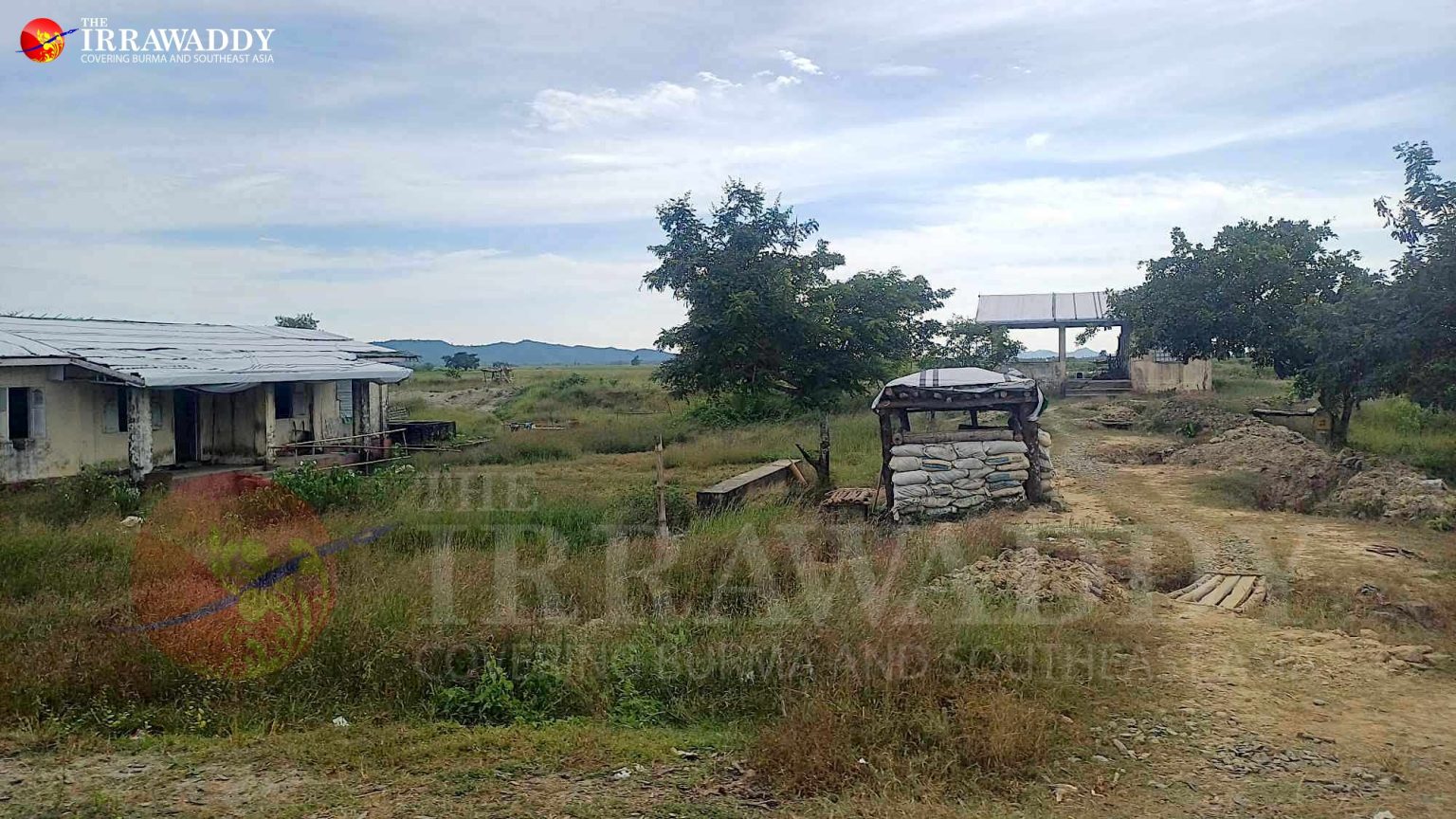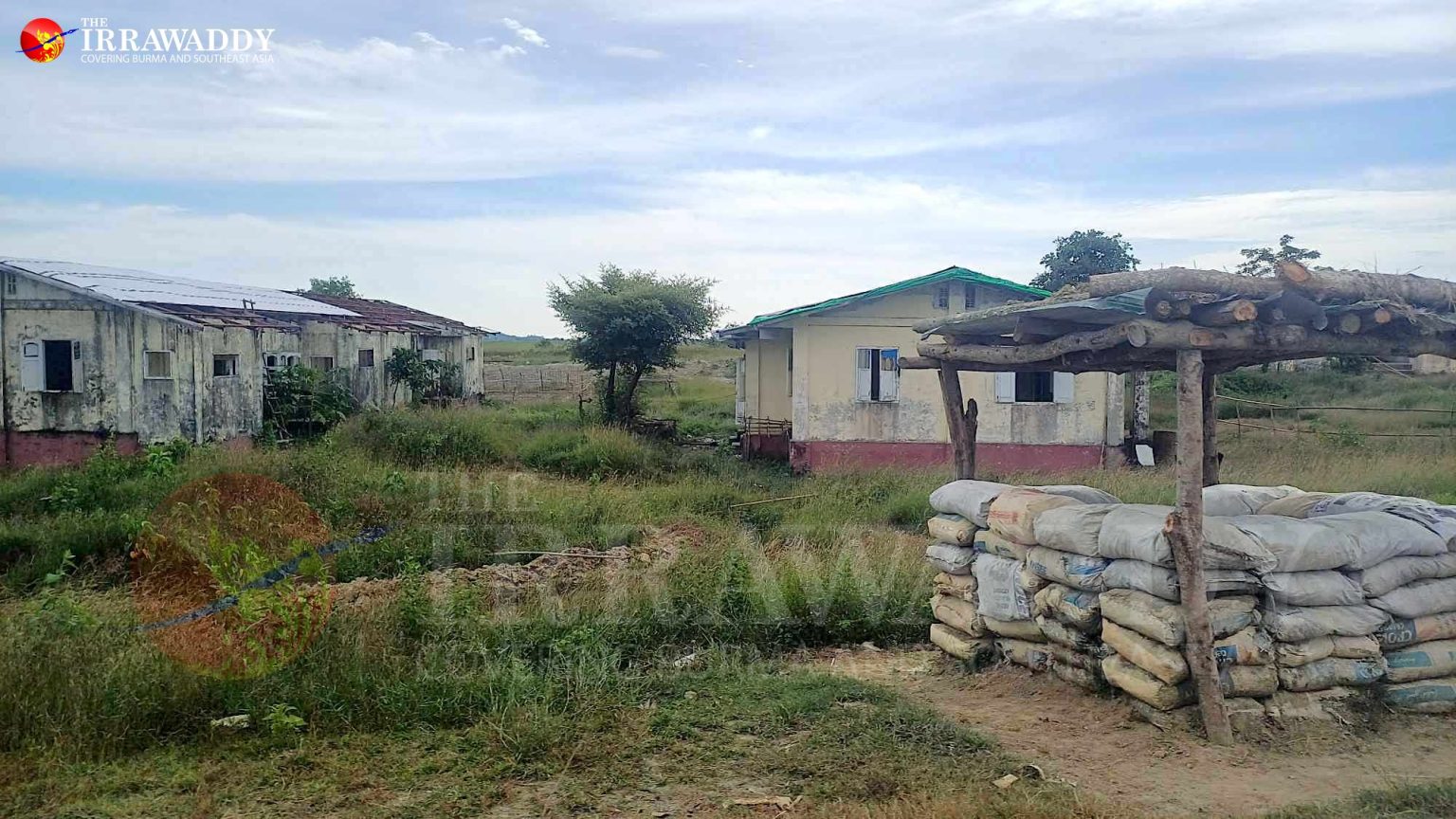Myanmar’s military regime has detained over 70 civilians in Rakhine State in the two weeks since fresh fighting erupted with the Arakan Army (AA), according to local reports.
Among the detainees are 30 from the state capital Sittwe, 14 from Kyaukphyu, 11 from Taungup, six from Maungdaw, five from Ponnagyun, three from Pauktaw, two from Myebon, and two from Rathedaung townships.
They were seized by junta personnel between November 13 and 26, according to One Nations News, a media outlet covering the conflict in Rakhine. They were detained under the Unlawful Association Act for allegedly having ties to the AA. The whereabouts of many of those being held are still unknown, say their relatives.
“The detainees have not yet been transferred to the police,” said a family member of a detainee in Taungup town.
“Family members have also been barred from visiting them. And we don’t know what charges they face.”
The detainees in Taungup are mainly owners of businesses, ranging from filling stations, gold shops and department stores to construction firms. They are being held at the Light Infantry Battalion 544 base in the town, according to relatives.

Local reports indicate that a General Staff officer (Grade 1) from No. 15 military command based in Pauktaw is demanding a ransom of 30 million kyats (around US$ 14,300 at the official exchange rate) for each detainee.
The Irrawaddy could not independently verify the reports.
In Thandwe town, junta troops are targeting leaders of civil society organizations, said residents. Around 10 have been arrested and their whereabouts are still unknown, the locals said.
In Kyaukphyu town, the majority of detainees are goldsmiths, according to a resident.
“They were arrested for paying tax to the Arakan Army. Hoteliers were also arrested. Dozens of people were arrested when soldiers went around the town and checked houses for overnight guests. I think around 30 people might have been detained [in Kyaukphyu town],” said one local.
The regime has blockaded Kyaukphyu since November 14, restricting delivery of food supplies into the town, he added.
“Even vegetables hawkers are not allowed to enter the town. Schoolteachers [from surrounding villages] who came to withdraw their salaries were also not allowed to enter the town. Junta troops paid their salaries outside the town. The troops drive around the town in military vehicles, and make arbitrary arrests,” he said.
The regime has also blockaded the state capital of Sittwe and other Rakhine towns including Kyauktaw, Ponnagyun, Buthidaung, Minbya, Myebon and Rathedaung. Residents said regime troops are driving around the towns at night and shooting indiscriminately.
A regime blockade last year that cut off supplies of food and medicine to Rakhine forced the AA into agreeing a temporary ceasefire on humanitarian grounds.

However, ethnic Rakhine politician U Pe Than said the regime’s tactic of imposing travel restrictions to starve civilian populations in Rakhine is no longer working as it struggles to contain an expanding nationwide resistance offensive.
“The regime’s tactics to instill fear in the public no longer work. The Myanmar military is not only fighting the AA but it is under attack across the whole country. Under these circumstances, the tactic of arresting and starving people and imposing travel restrictions amounts to pushing the people into a corner. The regime is digging its own grave,” U Pe Than predicted.
The Irrawaddy was unable to obtain comment from the regime about the arrest of civilians in Rakhine State.
The fresh fighting in Rakhine erupted as part of a resistance offensive that began in Shan State in late October and has since expanded across the country.

















